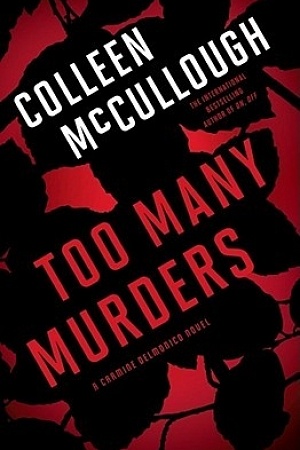Wyatt
Text Publishing, $32.95 pb, 288 pp
Hard-boiled heist
Why ‘Wyatt’? An evocative enough name for an Australian career criminal, but evocative of what, or whom? Of Wyatt Earp, perhaps, another gunman and homicide, if occasionally and famously on the right side of the law? Or Sir Thomas Wyatt, Tudor courtier, sensitive lover, diplomat and poet, who witnessed the execution of Anne Boleyn while himself a prisoner in the Tower of London? Garry Disher’s Wyatt has been in prison, and witnessed many deaths; indeed, facilitated some of them.
Possibly it is because Disher’s criminal’s name contains, homophonically, that interrogative adverb, ‘why?’. It’s rather like calling a character ‘Cipher’ (or ‘Wylie Sypher’, though that was the name of an actual American scholar) or ‘Marlowe’ or ‘Bond’ or ‘Villani’. In Paydirt (1992), Wyatt muses upon his own ‘coldness’, without stooping to propose a rationale. In The Fallout (1997), Wyatt ‘went in carefully, checking corners, checking the shadows. Wyatt lived in corners and shadows and that’s where the end of the world would come for him.’ At the end of The Fallout, Wyatt, wounded, ‘heard whispering footfalls in the grass, possibly the wind, and lay himself on the damp, rotting leaves to wait for Liz Redding, or possibly sleep, to claim him’. In the cold, in corners, in shadows, in the damp, that’s where the ‘why?’ in Wyatt insists upon itself, and stays not for a reply.
Disher has been dishing up Wyatt for two decades now, so it is perhaps inevitable that a certain tiredness seems to be creeping in, and not in Wyatt the character alone, though he certainly is ageing. In the new book, which concerns a heist gone wrong, the career criminal realises that ‘technology had outstripped him. He no longer had the skills to bypass hi-tech security systems or intercept electronic transfers.’ He is thus obliged ‘to carry out small-scale hold-ups and burglaries’. Disher’s novels, so often registering social change, demonstrate that even criminals get the blues.
Continue reading for only $10 per month. Subscribe and gain full access to Australian Book Review. Already a subscriber? Sign in. If you need assistance, feel free to contact us.














Leave a comment
If you are an ABR subscriber, you will need to sign in to post a comment.
If you have forgotten your sign in details, or if you receive an error message when trying to submit your comment, please email your comment (and the name of the article to which it relates) to ABR Comments. We will review your comment and, subject to approval, we will post it under your name.
Please note that all comments must be approved by ABR and comply with our Terms & Conditions.